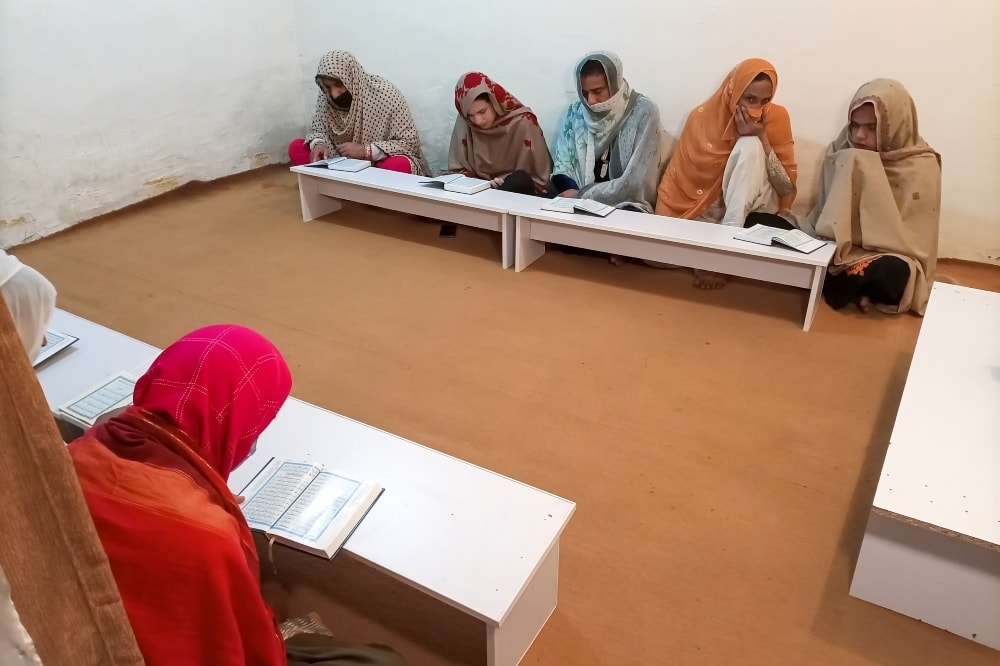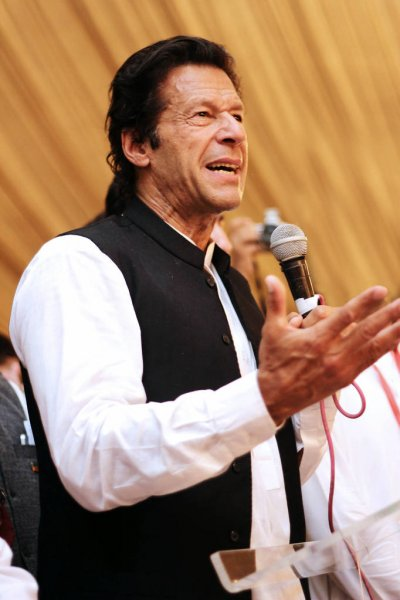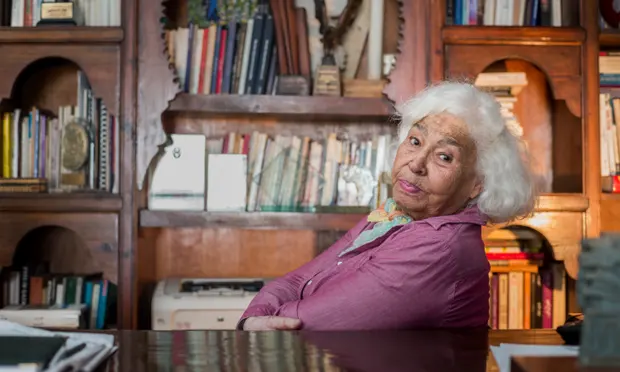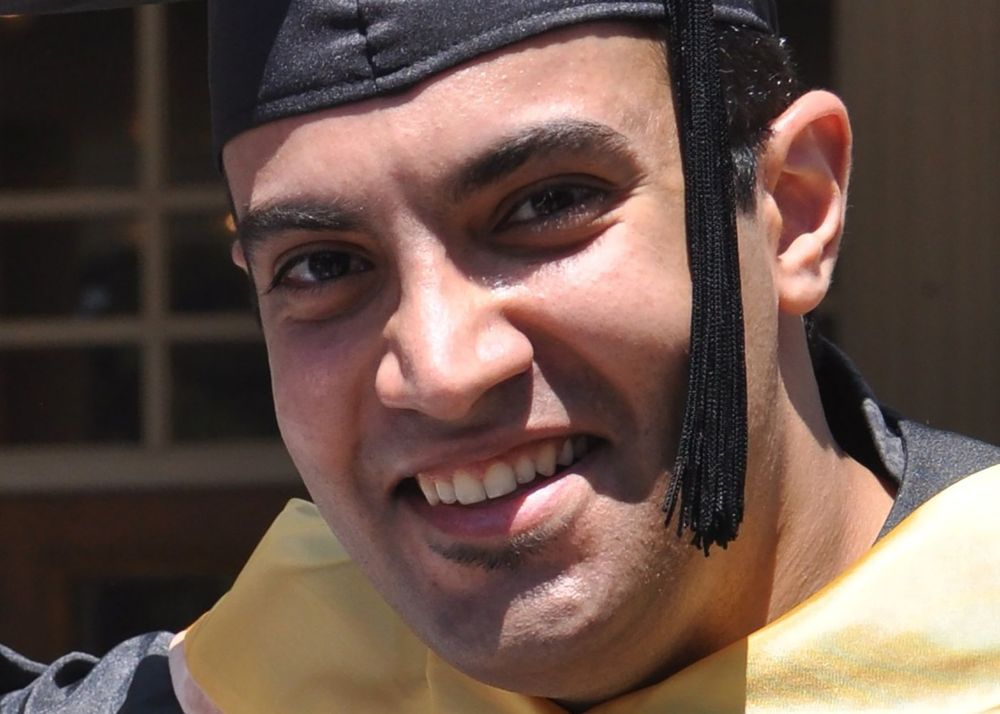In the West: Some steps backward, some steps forward.
On Friday, March 26th, a religious studies teacher at the Batley Grammar School in England was suspended for showing a caricature of Muhammad to his class for educational purposes. The suspension followed a demonstration in front of the school by several dozen Muslims, which one school parent described as “scary and intimidating.” A counter-petition started by a BGS student to keep the teacher from being fired has received more than 50,000 signatures. A few days later, the episode had escalated, the teacher receiving death threats and apparently being stalked. He, his partner, and his mother have become so fearful for their lives that they have reportedly gone into hiding.
Elsewhere in the UK, things are not as dim. The parliament of Wales has made the decision to include non-religious alongside religious worldviews in school curriculums. That this inclusion is justified by the greater preponderance of religiously-unaffiliated persons worldwide (16%) than Hindus (15%) did not deter Christian organizations from raising furor, one of which described the decision as a “one-way street that favours atheism over religion.”
Across the pond, the floodgates of secularization are not closing, either. Per Gallup, American church membership has fallen to a historic low — for the first time falling below 50%. And of course, just as in Wales, religious conservatives continue to lash out in reaction.

In Arkansas, the State Senate has recently passed a bill allowing “doctors, nurses, hospital administrators, and even insurance companies and employers” to deny healthcare on the basis of religious belief, a horrific and egregious violation of the freedom of conscience.
This month in LGBT-phobia: Vatican 1, Pakistan 0.
The Vatican has announced that homosexual unions continue to be intolerable. The announcement, approved by Pope Francis, appears to contradict the statement made

by the Pope during a 2019 interview in which he described supporting civil unions – an interview censored by the Vatican until it appeared in a documentary last October.
By contrast, this past month also saw Pakistan’s first transgender-only madrassah open in Islamabad. The madrassah is the work of Rani Khan, a transgender Muslim who was kicked out of her home at 13 and forced to become a beggar.
While wishing her the best, one cannot help but marvel at the two-fold contradiction that the project – into which Khan has poured her life savings – represents. On the one hand, transgender persons, while still discriminated against, have fared better than most of their LGBT peers in Muslim majority countries. And on the other, the students at Khan’s trans-only madrassah – an Islamic religious school – will have to confront the fact that Muhammad “cursed effeminate men and those women who assume the similitude of men.”
Business as usual in the Indian subcontinent
On Wednesday, March 17th, local police officers collaborated with a mob of clerics to deface an Ahmadi mosque in Gujranwala, Pakistan. Journalist Mona Farooq,

who reported on the incident, witnessed members of the mob celebrating after having destroyed the mosque’s domes, minarets, and calligraphic art. Ahmadis are regularly persecuted in Pakistan for their heterodox religious beliefs, with deadly blasphemy accusations and acts of vandalism being a commonplace experience for the community.
More recently, Pakistani Prime Minister Imran Khan spoke about rising cases of sexual assault in Pakistan, suggesting that it perhaps would not be happening if women had more decency and shame. He blamed “increasing obscenity” on a concurrent rise in “temptation” and urged the women of Pakistan to cover up. After all, as he says, “not everyone has willpower.” In other words, it is incumbent on women to keep the violent lust of would-be male predators in check; the poor men just can’t help themselves!
In India, meanwhile, former chairman of the Uttar Pradesh Shia Central Waqf Board Waseem Rizvi is under fire as Islamists demand his execution. Earlier in March, he filed a petition with the Supreme Court asserting that 26 verses of the Qur’an which “teach violence” are not part of the original text and should be removed. Since then, he has met a massive backlash, including several mass demonstrations throughout India and calls for his beheading, one of which promised a reward of about $15,000 USD to whoever did the deed.
Islamic fundamentalism and prejudice, it would seem, are alive and healthy no matter where one goes in the Indian subcontinent.
Egypt: two mothers honor-killed in the “Mother of the World”
A few weeks ago, Cairo courts handled cases involving the honor-killings of two mothers. On Monday, March 15th, the Egyptian Public Prosecution referred three men to criminal tr

ial over the death of a 34-year-old woman. She had been caught by her landlord and two other men with a male visitor in her home – a breach of Islamic chastity laws. The three intruders proceeded to torture the visitor and terrorize the woman until she jumped out the window in fright, to her death.
The following day, the Cairo Criminal Court sentenced an Egyptian man to just five years in prison for slitting the throat of his sister in front of her children, all of whom he had kidnapped and imprisoned alongside his sister’s mother. He proceeded to shut his sister into a bathroom, where she bled to death. The motive? He had come to believe his sister was engaged in “inappropriate” acts.
Later the same week, almost as if in dismay, the famed Egyptian feminist and critic of religion Nawal El-Saadawi passed away. In her lifetime, El-Saadawi authored more than 55 works, won numerous awards, and lectured at Harvard, Yale, and the Sorbonne. She had the unique honor of being condemned by al-Azhar, the most prestigious Islamic university in the world (otherwise ranked 11th in Egypt and 1,038th in the world).
“This refusal to criticize religion,” El-Saadawi once told The Guardian, “This is not liberalism. This is censorship.”
A sad week indeed for Egypt, Um al-Dunya, “Mother of the World.”
Saudi: fighting murder investigations with death threats
A top Saudi official threatened in a meeting with senior UN officials to have UN Khashoggi investigator Agnès Callamard “taken care of” if she did not desist.

After journalist Jamal Khashoggi was butchered in Turkey by Saudi assassins in 2018, Callamard published a 100-page report in June 2019 which concluded that Saudi crown prince Muhammad bin Salman was among those responsible. To suppress the investigation into this murder, a Saudi official apparently saw fit to insinuate another – a truly characteristic move.
Throughout Saudi Arabia, the human rights situation is indeed as grim as ever. Abdulrahman Al-Sadhan, a 37-year-old humanitarian aid worker, has recently been sentenced to 20 years in prison, apparently for online criticism of the Saudi government. The United States Department of State has expressed its disapproval of the move, strikingly draconian in its severity.
‘The dangers of renouncing Islam in Malaysia’
Vice World News has published an excellent piece on the lives of Malaysian ex-Muslims. Interviews with several apostates shine a light on their lived experiences in the Muslim-majority country, where their existence is almost entirely relegated to the shadows – lest they fall victim to ostracism or worse. You can read it here.


